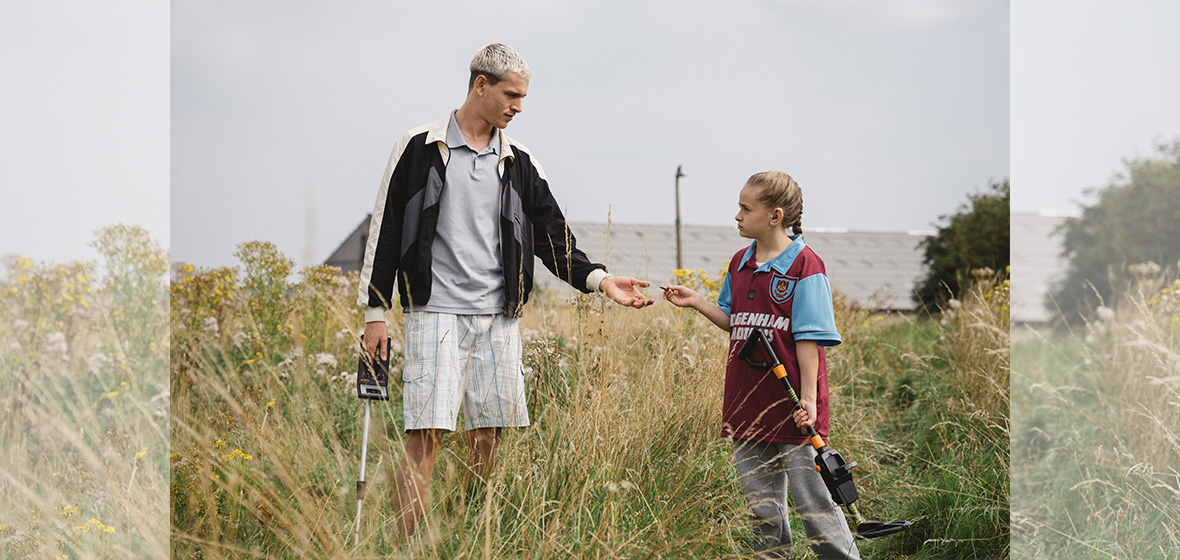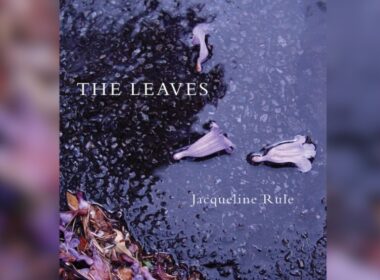The quintessential British art form is not the comedy or period film. It is the kitchen-sink drama. A cultural movement so strong it is stamped in the country’s DNA. It is more British than James Bond and boarding schools and only comparable to PG Tips and Percy Pigs.
Charlotte Regan’s feature debut, Scrapper, is different from the other films in the genre. It feels like a statement that tries to free the British film industry from the constraints of its practices. It’s about liberation, not re-inventing the wheel.
It starts with the quote, “It takes a village to raise a child,” as scribbles on the screen add, “I can raise myself, thank you”. That moment immediately defies social conventions, but Regan’s declaration of intention can easily be that whatever comes after is not bound to preconceived ideas of style and genre.
The “I” in that quote is Georgie (Lola Campbell), a 12-year-old who lives alone in a London council flat. Georgie’s mother passed away, and to avoid being taken social services, she pretends her uncle is looking after her. So Georgie spends her days dodging any situation that could catch her out– a local shop friend records messages she uses to pretend her uncle is on the phone and steals bicycles to sell for cash with her friend Ali (Ali Uzun). Georgie’s life is an episode of Home Alone without the peril. She can raise herself, thank you. To be fair, the village isn’t making a real effort anyway.
The arrival of Georgie’s father, Jason (Harris Dickinson), threatens her lifestyle. He has been absent all her life, living it up in Ibiza while working in hospitality with his mates, but her mother’s passing has him return to reconnect with his daughter.
Georgie, of course, is not open to any approach. She is a reserved person with a mysterious project she keeps locked in one of the bedrooms. But Jason’s perseverance and charm win her over. Jason is not the typical British absent father – he is a kid himself, still confused about the responsibilities of having a child. He is not an alcoholic nor prone to violence, atypical from stereotypes in the genre.
How the relationship between Georgie and Jason blossoms becomes the film’s real heart, especially when Jason has to find his own ways of being a parent. Like how he gives her tips to resell the stolen bicycles or the simple action of talking to another parent about his daughter’s behaviour. Little by little, Georgie and Regan warm up to the end that while the village is still not essential to raising a child, a loving adult is necessary.
Regan makes the exciting choice of shooting Scrapper like a typical British drama, but still occasionally breaking its rules. It turns into a magic realism fantasy at a certain point that doesn’t ultimately work. Sometimes, she cuts to these fourth-wall-breaking moments where members of the community are being interviewed, The Office style, about their relationship with Georgie, highlighting how little the community understands Georgie and how inefficient the system is at helping her.
And that is the part where it is challenging to understand Regan’s intentions. Georgie’s individualism is a trait that is never challenged. It is the community that needs to adapt, not Georgie, to show growth and find peace in her world. Regan sees the community around Georgie as a funny nuisance, a system that works for others but not necessarily for her. It is ironic that Georgie wears only a jersey of West Ham football club – a team sport – and lives in a council flat – funded by everyone’s taxes – and finds help and comfort from others in the community who go out of their way to help her. A point that the film never seems to understand is that, in reality, the village has been raising Georgie all along.
Verdict: 3.5 out of 5
A warm-hearted and well-intentioned film whose shortcomings don’t tamper its overall enjoyment




